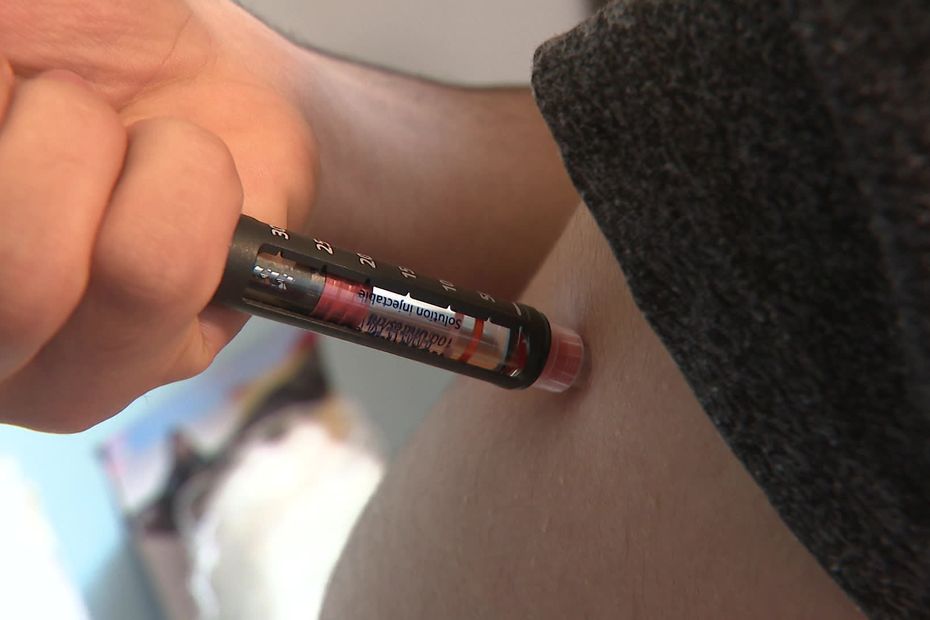Diabetes, an autoimmune disease, is affecting more and more children and adolescents, and contrary to popular belief, it is not due to poor diet. Cyril Ruello, pediatrician at CHU Grenoble Alpes, answers questions from France 3 Alpes
Type 1 diabetes, including the number of young people affected increases by 3 to 4% each year, is an autoimmune disease that disrupts the daily lives of affected children and those around them. At the Annecy hospital, in Haute-Savoie, the number of children diagnosed has tripled in less than ten years. This causes serious consequences for them. In fact, their pancreas no longer produces insulin, this hormone which allows the body’s cells to regulate the quantity of sugars in the blood.
Received ideas, symptoms, psychological care and scientific progress… Doctor Cyril Ruello, pediatrician at CHU Grenoble Alpes answers our questions.
What is the difference between type 1 and type 2 diabetes?
Cyril Ruello : In type 1 diabetes, which mainly affects children, the body can no longer produce enough insulin, due to an autoimmune process which has removed the ability to secrete insulin.
Type 2 diabetes, which affects 90% of diabetics in France, is insulin resistance. Affected people make a lot of insulin, but it is ineffective and this induces hyperglycemia.
What are the symptoms of childhood diabetes?
Cyril Ruello : The symptoms of type 1 diabetes are diverse: the child drinks and urinates a lot. If your child starts peeing at night again or has regular accidents, accompanied by fatigue or unusual weight loss, you should consult quickly.
Is there psychological support for these children?
Cyril Ruello : It is recognized as being necessary. There are currently few resources for psychological monitoring in the case of chronic illnesses. But all the teams at CHU Grenoble Alpes are doing what they can. We have a psychologist on the team who has very limited time for children who have type 1 diabetes, and yet she takes up a lot of time for them.
Do we know what part of this disease is genetic?
Cyril Ruello : We know that type 1 diabetes is an autoimmune disease, in other words, the body defends itself against itself. Here, the body produces an immunity process which will destroy the insulin cells of the pancreas. Why autoimmunity? There are many avenues, but not a single answer. We know that there is a small part of genetics, an environmental part, and many things that we do not know.
In the increase in cases of type 1 diabetes among young people, some specialists point the finger at Covid. What do you think ?
Cyril Ruello : In terms of childhood diabetes, we are not experiencing an increase linked to Covid. What we mainly saw was that at one point, during the first waves of the epidemic, there was a fear of going to the hospital and therefore a delay in diagnoses. We had a whole period with very few diagnoses, then a lot of diagnoses but very late. When we smooth this out over the year, there is no clear increase in the number of children affected by the disease due to Covid.
That said, we have seen a constant and continuous increase for years, but I do not believe there is a clear link with Covid.
In this case, how can we explain this increase?
Cyril Ruello : This increase is so rapid, on the scale of humanity, that we can only think of an environmental part. In this environmental part, we do not yet have a frank explanation. There is the question of urban areas, air pollution, the microbiota, in short, multiple answers. When we imagine diabetes, we often imagine junk food, too much sugar, too much food, but this has no link at all with type 1 diabetes.
For more than three years, in Isère, the Grenoble Alpes University Hospital has been treating a third of its patients with a “closed loop circuit” otherwise called “artificial pancreas”. This device, managed by artificial intelligence, injects insulin continuously, every five minutes and after meals, depending on what the child consumes. “Parents and children always have great action needed” specifies Cyriel Ruello, “at each meal, they must count how many carbohydrates were consumed and inform the pump“. “They have a better quality of life with this treatment” concludes the specialist.
#Type #diabetes #symptoms #preconceived #ideas.. #disease #affects #children

